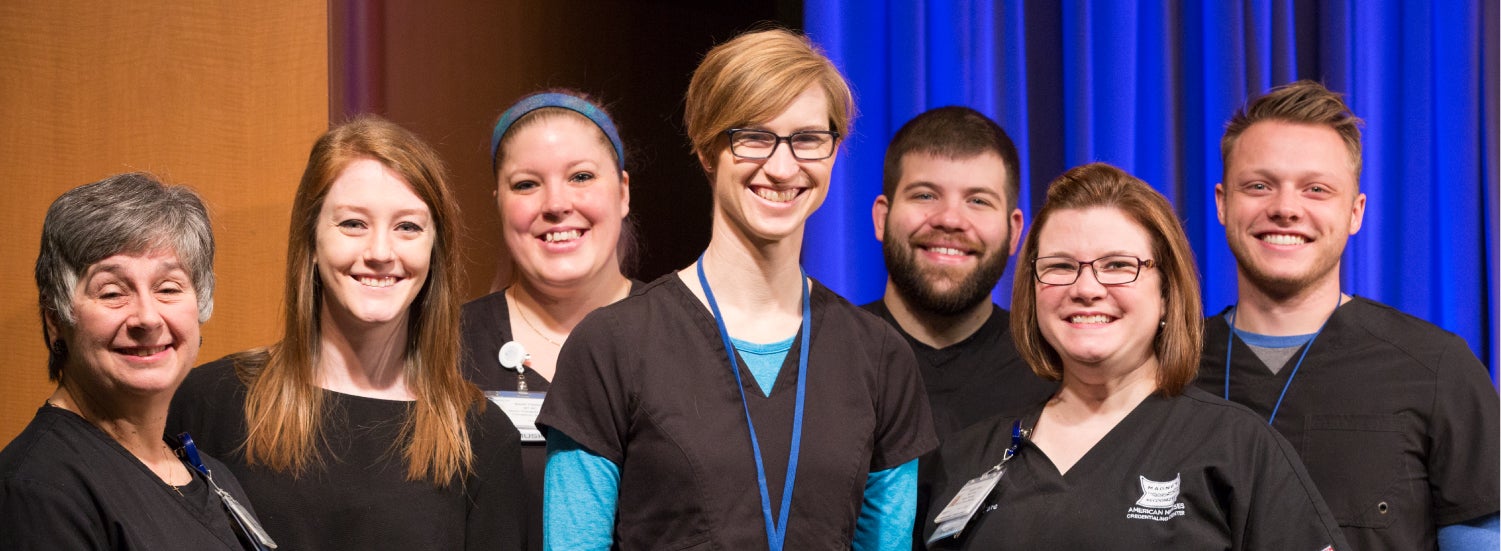UK HealthCare at the University of Kentucky
Updated on
February 12, 2024
Connecting employees through employee recognition

Every company has a purpose. But how do you create a workplace culture that connects your employees to that purpose in a meaningful way?
In 2017, UK HealthCare created new organizational values for the enterprise to help transform their culture. Through the LIVING DIReCT values (Diversity, Innovation, Respect, Compassion, and Teamwork), employees now have common beliefs they can live out among their peers, patients, families, and guests.
Employees across the organization, including over 400 leaders, were trained on these new organizational values. Stories of how people live out the values are shared on the company blog, In The Loop and newsletter, Vital Signs. Every part of the employee experience—from applying for a job, to onboarding, leadership development, and the performance evaluation process—incorporates the DIReCT values.
“We incorporate the values in our conversations and the decisions we make every day, in every interaction we have with a patient, their families, a co-worker, etc.” – CRYSTAL GABBARD, EMPLOYEE ENGAGEMENT MANAGER
Executive leaders are committed to the DIReCT values and to connecting each person to the organization’s purpose. One way to reinforce and connect their people to these newly adopted values is through employee recognition.
From inconsistent to aligned employee recognition
With over 9,000 employees across 3 hospitals and 80+ health clinics and centers, employee recognition wasn’t always easy for UK HealthCare. “There were pockets of recognition happening, and it wasn’t consistent across the organization,” explains Chelsea Smitson, Employee Recognition Coordinator.
That all changed when an employee engagement survey revealed that employees were not satisfied with the inconsistent recognition happening throughout the organization.
After going through a RFI/RFP process with a multidisciplinary team that included front line workers and leadership from many departments, UK HealthCare decided to partner with O.C. Tanner to revamp their entire recognition strategy. With O.C. Tanner’s help, UK HealthCare implemented a new recognition platform called the STAR Program (Special Thanks and Recognition) to recognize employees who go above and beyond their everyday responsibilities, live out the DIReCT values, and accomplish great work. Their mobile app makes it possible for employees to give recognition anywhere, anytime. “A lot of our people are on the go—they can send recognition when they’ve stopped in the hallway, in the elevator, or while waiting for the bus,” says Smitson.
UKHC also implemented a more timely career milestone anniversary program. In the past, employees had to wait for the close of their anniversary year, then were invited to the annual event the following May to be recognized for their years of service. Now, the organization has an event each month to celebrate the honorees in the month of their milestone anniversary. Recipients are honored in a graduation style ceremony where they can meet and take pictures with leadership, and receive a Yearbook™ with comments from peers and leaders congratulating them on their career milestone.
UKHC has continued to receive positive feedback from employees about the Career Achievement ceremonies. One recent 50-year honoree chose a symbolic pin over all the other high-end awards available because it was so meaningful to him. “They are so excited about picking their anniversary gift. Their faces light up when they talk about their gifts. It’s worth all of the work, all of the checks and balances, for that smile,” says Smitson.
To learn about the best practices and benefits of recognition, Smitson attended O.C. Tanner’s “Train the Trainer” class, and all leaders participated in a keynote presentation about the power of recognition during the organization’s annual leadership week. “It’s a research-based strategy, with a wide-range of capabilities within the system. It’s great to be able to reference whitepapers to show why we are doing what we are doing, and to show the benefits of recognition,” says Smitson.
“We’ve built a strong relationship with the O.C. Tanner team. They give us ideas and best practices. They are not just a vendor and we aren’t just a client. It’s a partnership where we are able to lean on each other,” agrees Gabbard.

Results
Individual departments still have department-specific awards, but now recognition from the enterprise is all streamlined into the STAR program and aligned with one set of brand values. The STAR Program helps to support different organizational awards by giving points instead of items so the recipient can pick an item that is meaningful to them. Recognizing employees through the system gives managers a wealth of data to see the great work that is taking place every day and how the DIReCT values are being lived. Executives are strong proponents of recognition and use the program themselves.
“Instead of being manager driven, it is now everyone’s responsibility in the organization to recognize when they see great work,” says Smitson.
And they are already seeing results. Responses to the question “I am satisfied with the recognition I receive” on the organization’s annual employee engagement survey indicated statistically significant improvement in just one year after the Career Achievement and STAR programs launched. Leaders are using the STAR program to help support areas that didn’t score as high on the engagement survey for the recognition question. There has also been an increase in interest for using the STAR program to help support different department initiatives.
The STAR program now provides a consistent way to recognize across the enterprise, and the employee feedback from the Career Achievement celebrations have been positive:
• 88% of employees loved their awards
• 83% said their Career Achievement experience shows the company cares about employees
• 81% feel a strong sense of pride in the organization
• 91% understand how they contribute to the success of UKHC
• 90% want to stay
“Recognition just feels good. It feels good to be recognized and to recognize others. Recognition makes people smile and brightens their day. It’s a way to invest back into employees. It impacts engagement, our values, and communication between employees and managers. It’s just positive,” says Smitson.
As the number one hospital in the Kentucky and Bluegrass Region, having four major health care areas in the top 50 national rankings (according to US News and World Report’s Best Hospitals rankings), UK HealthCare’s culture has also been impacted by recognition.
“When you think about overall culture, there are key elements. Appreciation is one of those key elements in building a strong culture. It’s leadership, giving opportunities to employees, making them feel successful, and appreciation,” says Gabbard.
Moving forward, UK HealthCare is focused on increasing momentum of the STAR program and peer comments in the Yearbooks. They hope engagement scores continue to improve with a continued focus on the DIReCT values.
“O.C. Tanner is open and willing to understand our needs. They are very versatile and a resource to help us grow our culture,” says Smitson.
“Our UK HealthCare system has evolved into a care venue treating some of the sickest, most complex patients from across our region. Our interdisciplinary teams are at full throttle every single day and night. As we all give 110% to exceed our patient expectations and deliver on great clinical outcomes, we often find ourselves not taking just a moment to say to our teams and to one another, “You did really great work today!”.
Individual and team recognition is very meaningful. We are working across our health system to honor the contribution every single team member makes. Each and every contribution coalesces to really make our health system sing. Often, recognition only takes seconds—we are placing emphasis on pausing for those few seconds to encourage one another and express gratitude for all we do for every patient, every time.” Colleen H. Swartz, Chief Nurse Executive and Chief Administrative Officer.



